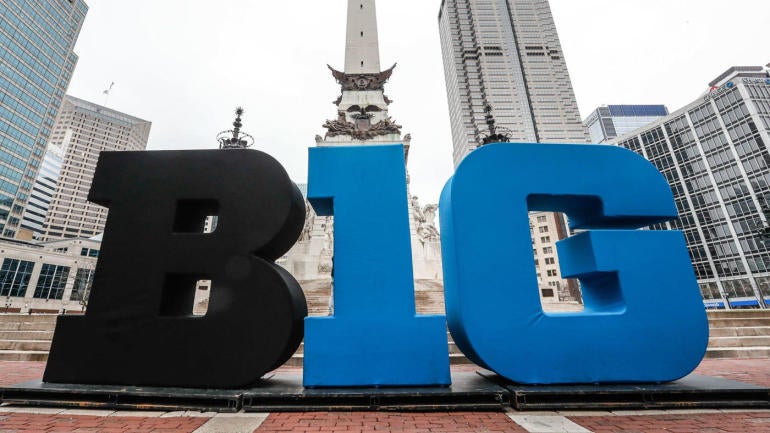
Big Ten presidents and chancellors voted 11-3 to cancel the 2020 fall college football season due to concerns with the ongoing coronavirus pandemic, lawsuit documents obtained by multiple outlets showed. The official count, which had previously not been officially known, comes courtesy of two sworn affidavits filed by the league on Monday. The documents are in response to a lawsuit filed by eight Nebraska football players in an attempt to get the conference to reverse course on postponing football until 2021.
According to CBS Sports' Dennis Dodd, Nebraska, Iowa and Ohio State voted to play in the fall. Big Ten bylaws require at least 60% (nine) of the league's presidents and chancellors to vote in favor of postponing the season.
The conference has come under extreme scrutiny from a variety of fronts since making the decision on Aug. 11. Numerous players, coaches, parents and fans made it clear they felt football should be played in the fall, especially with the ACC, Big 12 and SEC moving forward. At the center of the criticism has been commissioner Kevin Warren, whose lack of leadership in the aftermath has hindered the conference's once-esteemed credibility.
Not helping matters have been the disjointed comments of Big Ten admins. Speaking earlier in August about the decision, Minnesota president Joan Gabel said, "We didn't vote per se. It's a deliberative process where we came to a decision together." Meanwhile, Penn State athletic director Sandy Barbour said, "It's unclear to me whether or not there was a vote."
News also leaked that the Big Ten was looking into starting its season around Thanksgiving weekend instead of 2021, among other considerations. The idea, originally proposed by the conference's coaches, could have given the Big Ten the ability to play upwards of 10-11 games in a season as opposed to eight if it started in January 2021. However, such a change of heart could be viewed by some as caving to pressure from those who are against a spring season.
In any case, the power to make such a change comes from the presidents and chancellors only. Warren has reiterated that the conference has no intention of revisiting the possibility of playing football this fall.
















